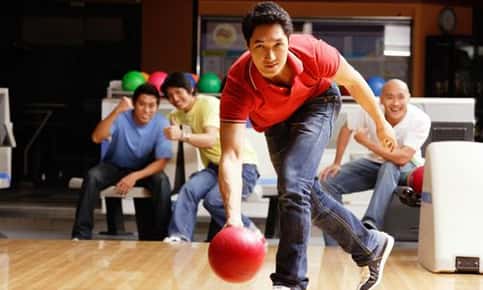Learning From History
- Created in Newsletter Library, Mind-Body Connection

Whether we're driving a car, riding a bike, or trying to record a spare at our local bowling alley, our musculoskeletal system bases its decision-making on past history, that is, what it has learned before. Drawing on years of experience, recorded deep within our muscle memory, we're able to avoid an unexpected obstacle in the middle of the road, or adapt quickly to a slip on a slick spot on the bowling lane. The history embedded within our physiology immediately directs our actions in the present moment. We don't have to think about these things. We react — and act — instantaneously, and more often than not, the right result just happens.
Similarly, with a different type of training, a child soon learns not to touch a hot stove and not to pull the cat's tail. A few years later, when the child begins school, she or he starts to acquire the skills that will lead to the critical accomplishments of being able to read, write, and do arithmetic. If learned properly, these capabilities become lifelong resources. In adulthood, if we're appropriately motivated, we continue to learn. Among the primary fields of such learning is the realm of taking care of one's health.
In the area of health care, we learn that if we don't eat right, get enough vigorous exercise, or obtain sufficient restful sleep, then the good health we took for granted will begin to fade away, to be replaced by problems, symptoms, and diseases. Some of us had parents who encouraged a healthy lifestyle and demonstrated by example, others played high school sports and continued their fitness activities into adulthood, and yet others never had these advantages but understood that the demands of adult life required them to be able to function at their peak.
In other words, being healthy is a learned behavior. Our personal history teaches us that we need to do certain things to keep being healthy and well. The good news is that if we haven't been leading a healthy lifestyle, it's usually not too late to start. Regular chiropractic care provides great assistance for all of us, adults and children, who are or want to be on a healthy path. Regular chiropractic care detects and corrects sources of nerve interference and helps restore and maintain full function in our spine and all the other components of our musculoskeletal system. In this way, regular chiropractic care helps our bodies to function at maximum levels of good health, and helps us achieve our goals of ongoing health and well-being for our families and ourselves.
If you are ready to learn some new healthy behaviors, contact us for an appointment and we will help you in reaching your health goals.
Sources:
- Masley SC, et al: Lifestyle Markers Predict Cognitive Function. J Am Coll Nutr 14:1-7, 2017
- Karlsson L, et al: Intramuscular pain modulatory substances before and after exercise in women with chronic neck pain. Eur J Pain. 2015 Sep;19(8):1075-1085, 2015
- Alger SE, et al: The role of sleep in human declarative memory consolidation. Curr Top Behav Neurosci 25:269-306, 2015
Health Resources

The following resources have been assembled to provide you with more chiropractic wellness care information available on the internet.

American Chiropractic Association
www.amerchiro.org
Palmer University
www.palmer.edu
Foundation for Chiropractic and Education Research
www.fcer.org
Children’s Chiropractic Research Foundation
www.icpa4kids.org
Journal for Vertebral Subluxation Research
www.jvsr.com
International Chiropractors Association
www.chiropractic.org
Chiropractic Resource Organization
www.chiro.org
Chiropractic Online Today
www.chiro-online.com
Chiroweb.com
www.chiroweb.com
World Federation of Chiropractic
www.wfc.org
The Association of Chiropractic Colleges
www.chirocolleges.org
World Chiropractic Alliance
www.worldchiropracticalliance.org
Today’s Chiropractic Magazine
www.todayschiropractic.com
National University of Health Sciences
www.nuhs.edu
Life College of Chiropractic
www.life.edu
New York College of Chiropractic
www.nycc.edu
